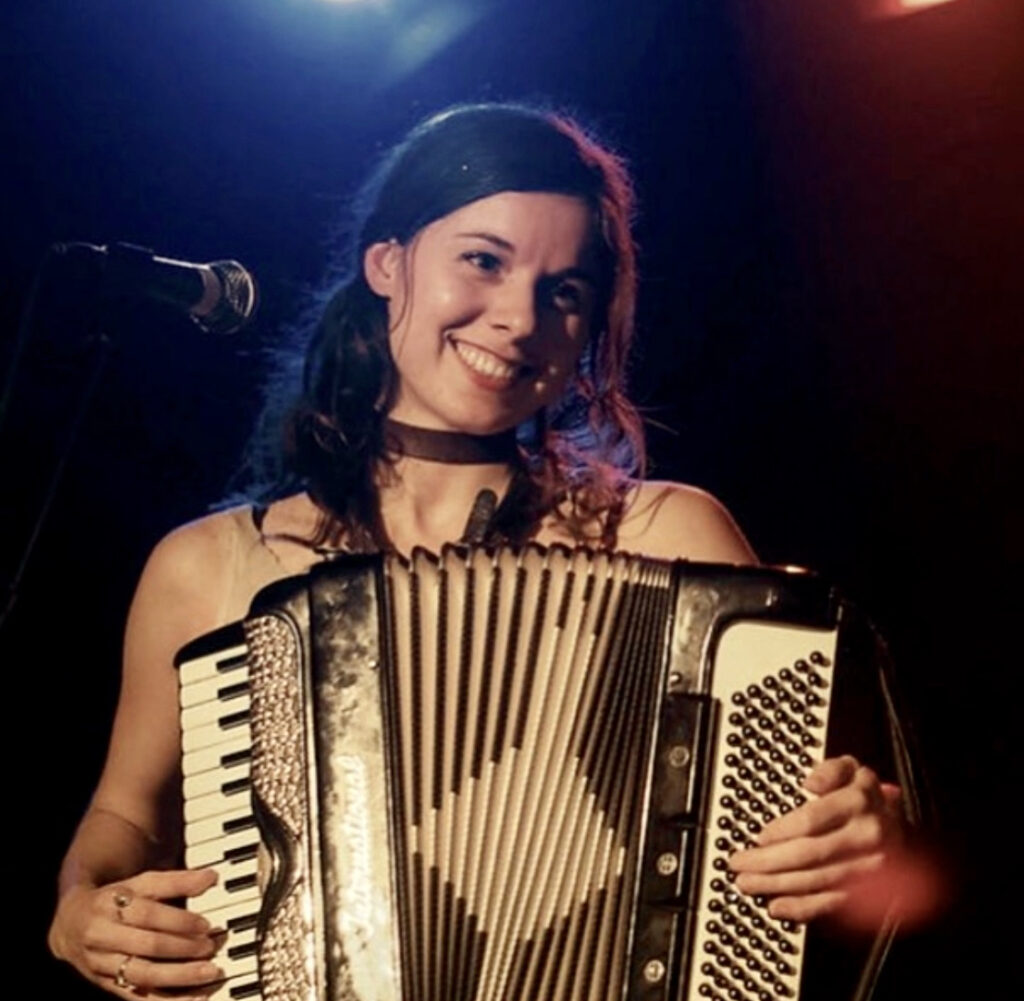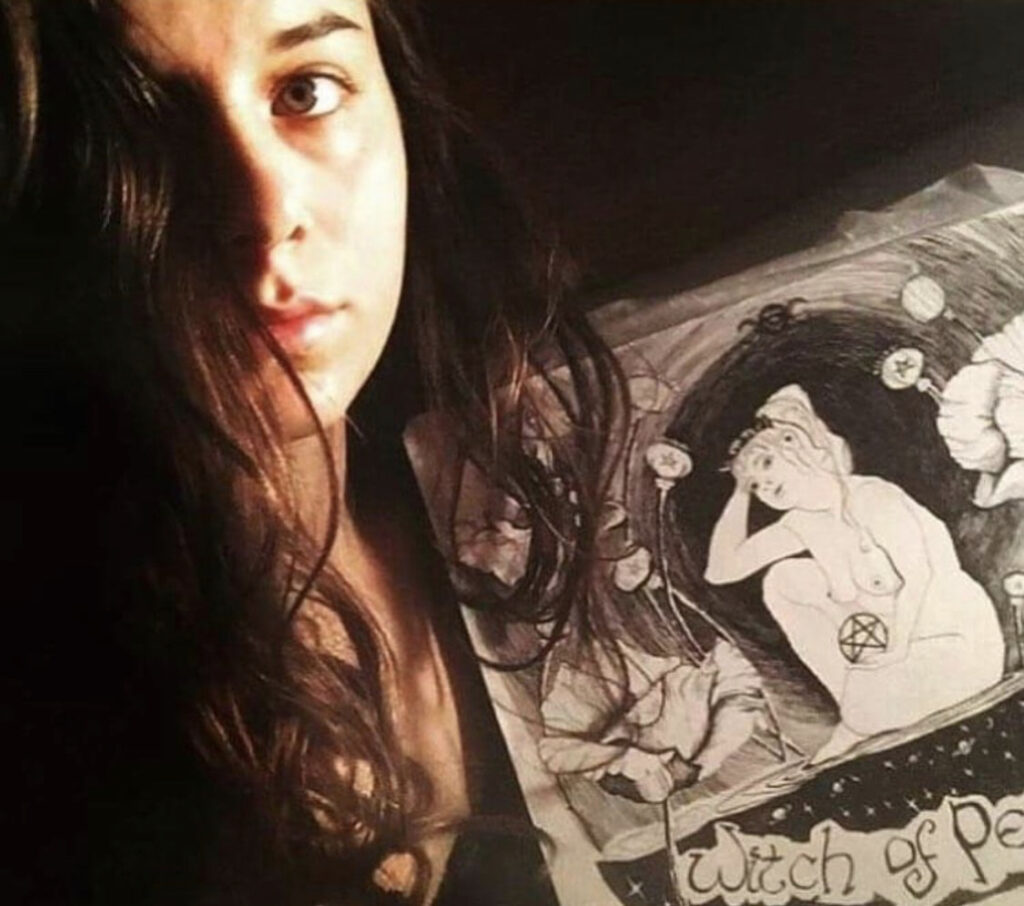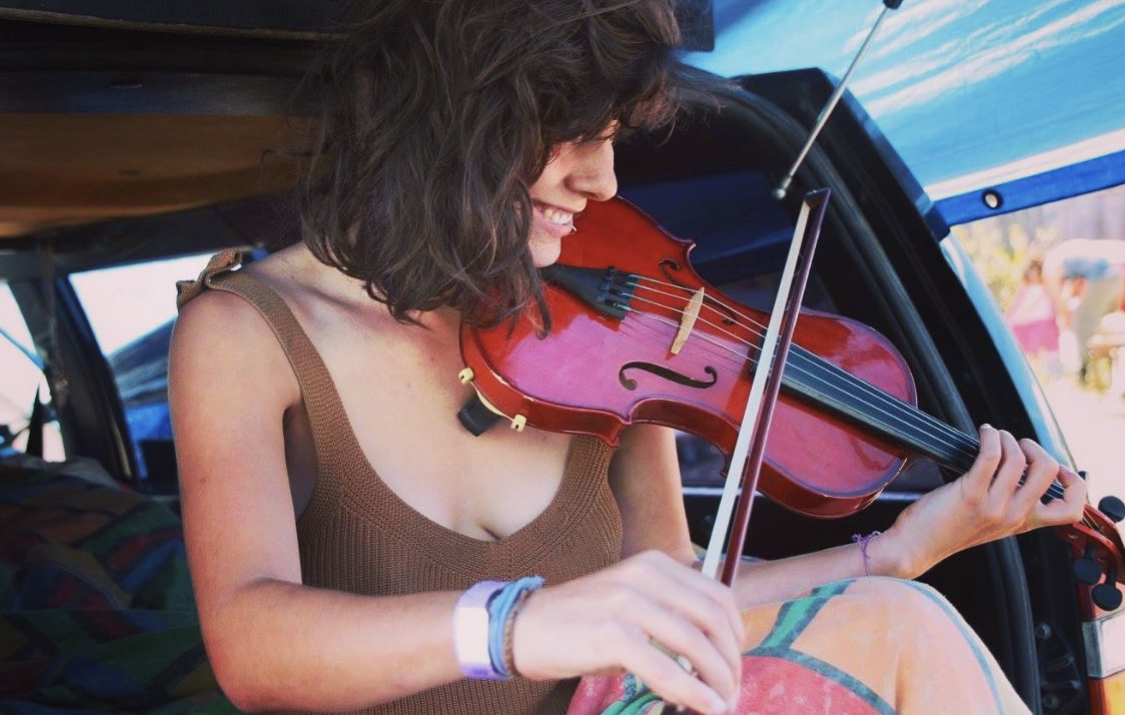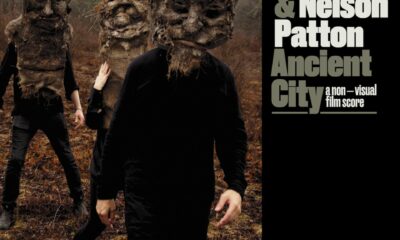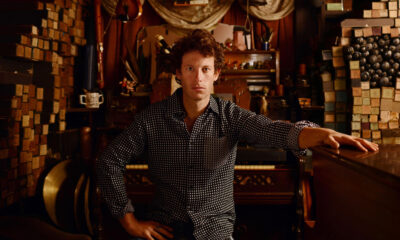Interviews
Lucy Lambert Interview: Debut Album ‘Lucy Lambert’s Violet Drift,’ Writing Process & More!
We recently caught up with Lucy Lambert for a conversation about her debut album ‘Lucy Lambert’s Violet Drift,’ playing live, the recording process, and what comes next.

If there was such a thing as a jazzologist, then Lucy Lambert would be one. The musician practically lives and breathes jazz as the lead signer, accordionist, and bandleader for her acoustic jazz act Lucy Lambert’s Violet Drift. The Montreal-based band just released their self-titled debut album back in October, which features a bunch of modern interpretations of early jazz music. Many of these interpretations are real favourites of the band, including compositions originally by Duke Ellington and Jellyroll Morton. Several of them are lesser known, with Lambert and her associates paying tribute to compositions that made them want to be in a band in the first place.
Included in Lucy Lambert’s Violet Drift, aside from Lambert herself, is Joseph Abbott on clarinet, Louis Levesque on tenor banjo, Juliette Magrange on cello, and bassist Tyler Parent. Lambert rounds things out with her raw and soulful take on jazz. Originally from Vancouver, Lambert moved to Montreal after travelling for many years, where she found the music scene that she needed to be in. Along the way, she spent time living and playing in New Orleans and parts of Europe and East Asia. Outside of music, Lambert is also a graduate in Painting & Drawing from Concordia University and has a lot of experience working in oil paints, which she connects back to her songwriting.
We recently caught up with Lambert for a conversation about the new album, playing live, the recording process, and what comes next.
You guys are an extremely elaborate band. How does it make you feel when that power and energy you channelled in the studio come to life in front of a crowd?
“I am really a believer in the magic of live performance! A lot of theatre has origins in ritualistic magical ceremonies dating back to the invention of theatre in Ancient Greece, which initially took place in temples, and was considered to be an offering to certain gods and deities before it became entertainment. It’s the same with Druidic music in Ireland and also with jazz; it has origins in the music of Africa, with the horn harmonies mirroring the call and response of African a capella singing.
“African music also has ceremonial magics inside it, and there were songs to worship and invoke natural forces like rainstorms, sunshine, etc. That was taking place in the music of Africa before the slave trade and even throughout. You just couldn’t get the music out of the people because there’s magic inside it. I find that really inspiring. I believe that magic is still alive in jazz, especially because of the influence of Haitian voodoo on the music of New Orleans, which is undeniably a ritualistic, performance, and trance-based religion, and you can feel that magic in the streets when you go down there, the music, the voodoo, the heat, the hedonism, it’s all interconnected. That’s what makes it swing.
“It’s kind of like music is this purging of negativity when you look at it from a more religious and ritualistic perspective, like we connect with our demons in order to release them. There’s definitely a kind of calling in of supernatural forces that I believe can happen through performing arts, be it theatre, singing, music, or even sculpture, any art that invokes and transforms a space. I’m pretty sensitive to those kinds of energies, and that’s a big part of what compels me to sing in front of crowds and pursue performing arts. You can feel the space transform sometimes, and another entity is present and flowing through you, and I think it’s healthy for humans to stay alive and have relationships with those forces.”
What’s the best compliment you ever received?
“Someone ran up to me after a pretty special Halloween cabaret show at the Café Cleopatre, a pretty iconic and grungy venue upstairs from the oldest Montreal strip club, and said to me, ‘you sing like Billie Holiday, but better!’ That was basically as high a compliment as I could ever hope to receive.”
What do you like most about playing music?
“I love the community. I have made so many friends through music that it would be impossible to count. It feels like music has provided for me everything in my current life, my social networks, my income, my life purpose, and also my ability to travel. I feel very taken care of by the muse. But definitely, the people you meet and are inspired to play and work with is a highlight for me. It’s such an essentially collaborative art form that the social aspect is a huge bonus.
“A lot of arts are more solitary (I’m a painter and writer also), and I find I lean more towards music now because it always gets you out into the world interacting and collaborating with new people. Music is a spiritual force, I think, and it is deeply healing. Part of the healing is in how it bonds people and creates deep connections.”
Which do you enjoy the most: writing, recording, practicing, or playing live?
“After producing this album, what I love most is singing and producing. I did a lot of live performances over the years, and always love to perform, because it feels like I meet myself and remember who I am on stage. But this was my first time producing a live album with a full band. Recording live was a big part of what I loved about working on our album; you really hear the raw chemistry of us playing together live and the energy of our improvisation, and there are no overdubs, not even for my singing. It was all played once in the same room.
“So that made it really fun for me to produce, and challenging, because every take was different; people played different solos each time, and our harmonies and way of interacting changed as a band in every take, and then I went through and found the best ones of everyone’s playing, but there wasn’t that much I could change post recording other than edit the takes together.
“I loved doing a live album because the energy of people playing live is in the recordings, as opposed to a more produced album where it can feel quite stale and unauthentic to me. I don’t listen to a lot of that kind of music, so it would be counterintuitive for me to try to make an album that way. But that has always been why I love jazz, for the energy and fun of people playing together in the present moment. I feel a recording should sound as natural of a representation of how an artist sounds in real life as possible. There’s a magic captured in live recordings that you don’t really find in overly produced records.”
Do you have anything you’d like to tell any fans reading right now?
“Practice! Practice every day, and you’ll be a good musician, whichever instrument you’re playing. There are no shortcuts. Just put the work in and dedicate yourself, and you’ll see results, no matter what art form it is.”
What’s next for you?
“I feel really grateful to have received my first arts grant this year from the Quebec government, which will pay for the recording and production of my next album! I received the grant around the same time as launching this album in the fall, so it’s been a very exciting time. It’s a year-long program that covers my living expenses so that I have time to compose and record, as well as giving me a few grand for production and new videos.
“I’m already working on some of the songs and hoping to play more violin on it and have it be more of my original compositions and a bit more of a solo project. I’m also working with a really talented photographer on our album cover this week, so I am excited to release another album this year!”
Politics and music, yay or nay?
“Yes, definitely! I think artists have a responsibility to use their platforms to help save the planet and end oppression of all kinds.”
What is your writing process like?
“I think improvisational is a pretty accurate description. I think a lot of songwriters agree that their best songs kind of just flow out of them, and they are not totally sure where they come from. The best music just kind of occurs spontaneously, that’s why being able to record what you’re playing or singing on a home recorder and listen to it later is probably the best way to go about it, that way you can just focus on expressing yourself without thinking about how it sounds or how you’ll remember it for later.”
Is there anywhere you would like to go that you have not been to?
“I’m actually planning a move for half the year to Los Angeles! I passed through two years ago on my trip across the country with a caravan of jazz musicians on my way to New Orleans. It was a really fun trip, and I feel very drawn to the desert; I want to live somewhere warm where there’s a bigger music industry and where I can go into the desert to paint.”
If you could change anything about the music industry, what would it be?
Lucy Lambert: “There’s this kind of constant assumption that female musicians don’t have the same capabilities, and need to be overly encouraged and constantly told what to do and how to do things. Which kind of amounts to this wall of condescension, being patronized, and just feeling othered. At some points, there are so many attacks on your self-esteem from people who don’t even know you, who just have a low estimation of female artists. I’d rather just be seen for my unique capabilities and talents, which are my own, and not as a ‘female musician’ and not compared with other women just because were female. I’m sure a lot of female musicians feel the same.
“I would also rather that people focus on being able to play instruments. or sing. or compose well live rather than building internet personas. It all starts to feel pretty fake, and it’s the same in the art world. That’s why I love the jazz world as opposed to other kinds of music; I think it’s really a hard genre of music to fake being talented in, so it maintains its authenticity. If you can play or sing, then you can play.
“I feel that jazz is very focused on being able to play live and improvise and communicate musically in the real world instead of fake-out in the studio. There are more bells and whistles in other genres where it feels like the production is high, and maybe there’s a fanbase, but the talent is not really there. Though I know there are some incredible jazz albums coming out that are more produced, and they sometimes come out really great.”
-

 Music1 week ago
Music1 week agoTake That (w/ Olly Murs) Kick Off Four-Night Leeds Stint with Hit-Laden Spectacular [Photos]
-

 Alternative/Rock2 days ago
Alternative/Rock2 days agoThe V13 Fix #011 w/ Microwave, Full Of Hell, Cold Years and more
-

 Alternative/Rock1 week ago
Alternative/Rock1 week agoThe V13 Fix #010 w/ High on Fire, NOFX, My Dying Bride and more
-

 Features1 week ago
Features1 week agoTour Diary: Gen & The Degenerates Party Their Way Across America
-

 Culture1 week ago
Culture1 week agoDan Carter & George Miller Chat Foodinati Live, Heavy Metal Charities and Pre-Gig Meals
-

 Music1 week ago
Music1 week agoReclusive Producer Stumbleine Premieres Beat-Driven New Single “Cinderhaze”
-

 Indie2 days ago
Indie2 days agoDeadset Premiere Music Video for Addiction-Inspired “Heavy Eyes” Single
-

 Alternative/Rock2 weeks ago
Alternative/Rock2 weeks agoThree Lefts and a Right Premiere Their Guitar-Driven Single “Lovulator”


